Your cart is currently empty!
Blog
-
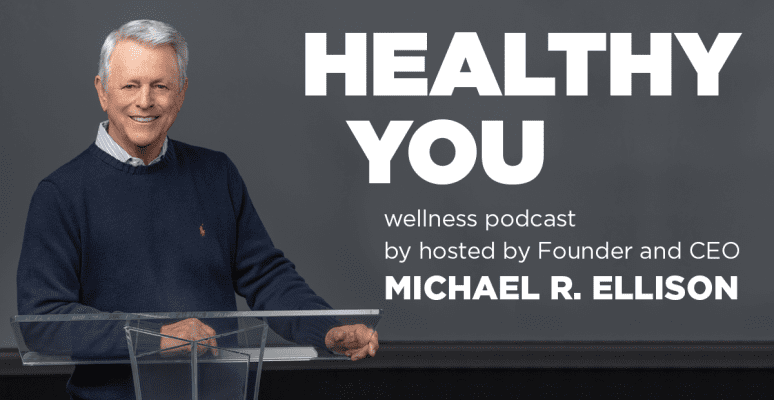
Episode 13: Featuring Gil Mertz
Gil Mertz shares how forgiveness can transform your life and enlighten your health journey.
Are you holding a grudge against someone? Or, maybe someone deeply hurt you and you’ve carried the wound for so long that it’s become a part of who you are. Perhaps it’s not about someone else hurting you, but you hurting yourself as you continue to beat yourself up because of poor decisions. How do you find freedom?
In this episode, Gil Mertz shares how forgiveness effects each of us, how forgiveness can transform your life and how to experience God’s power through forgiveness and the freedom that’s available to us through the act of forgiving. Plus, he’ll share his own story of healing wounds from the past.

About Gil Mertz:
Gil Mertz is a former pastor and radio talk show host. And he currently serves as assistant to the president at Family Research Council in Washington, D.C. Gil has dedicated nearly forty years to full-time Christian service and draws from a vast background of ministry with international missions, humanitarian causes, public policy and consulting. His daily commentaries on forgiveness have been broadcast on more than 300 stations across America.
Forgive Your Way to Freedom: Reconcile Your Past and Reclaim Your Future

In his book, Forgive Your Way to Freedom, Gil Mertz maps out the biblical journey of freedom through forgiveness. He dispels the common myths surrounding forgiveness, details how forgiveness roots itself in our lives and examines how to make peace with God.
Forgive Your Way to Freedom also includes reflection and discussion questions at the end of each chapter, a self-evaluation quiz and information on how to apply the principles discussed to your life.
“God has created each of us with a purpose, with dreams, and a call to fulfill. And for each of us, as life gets in the way, we must decide how we will respond. We can allow what others have done to us to dictate our destiny. Or we can push forward, forgive the wounds of the past, and use what we’ve learned to lead us to achieve our God-given destiny.” – Gil Mertz
-

More Than Just a Game
Participation in group sport and physical education is fundamental to healthy
childhood development . It has essential physical and emotional benefits and has a unique power to attract, connect and inspire children.Soccer is a well-known and highly favored sport around the world, especially in Africa. Soccer promotes teamwork, improves confidence and builds community. It’s for these reasons that House of Giving has partnered with JAM International to create a Field of Dreams.
How it All Started
In 2015 while implementing nutrition and clean water programs in Mozambique, Michael and Susan Ellison saw an opportunity to introduce team sports into educational programs. Team sports encourage children to play together, stay in school and live healthy, active lives. The first step of this initiative was to provide soccer kits to 1,020 children in 34 different schools in Mozambique, Angola, and South Sudan. Each kit included jerseys, gloves, shorts, and two soccer balls. In addition, over 2,000 individual soccer balls were donated to schools, hospitals, orphanages, and community centers. These donations instilled a sense of pride and team spirit among the kids and promoted the participation of young girls by including equal numbers of girls and boys in team selection.
The current project in Mozambique, Africa began with a single soccer ball, but the program couldn’t stop there. House of Giving is dedicated to providing the children of Mozambique with a safe facility to practice, play, learn and grow into future leaders.
Building a Field of Dreams

The Field of Dreams project has seen its share of setbacks, most notably a severe dust storm in late 2017 that disrupted grass seeds and prohibited the grass from successfully germinating. However, patience is a form of faith, and the project must continue. As it stands today, the land in the Vilanculos area is being prepped, and grass runners are growing on the JAM farm for future harvesting.
Alongside the beautiful soccer field will sit the Centre of Excellence, which will provide education and training for young people from surrounding areas. Programs available at the facility will include training on scientific farming methods, business practices, and resources to help students understand the farming industry. Included at the Centre of Excellence will be advanced learning courses to help bridge the gap in education for local children.
The impact that will be made in the lives of these children is immeasurable. In partnership with JAM International, House of Giving aims to bring education, athletics, and pride to the rural communities of Mozambique.

About House of Giving
Annie Ellison is the Director of House of Giving, TriVita’s charitable organization
whose purpose is to simply give back to those less fortunate. Since its inception in 2001, House of Giving has provided significant contributions and resources to communities in the United States and other international communities in need—focusing on the basic pillars for social and economic development such as; nutrition, clean water, education, and adolescent team sports. -

How Stress Affects Your Body Systems
Stress is a natural part of life that affects everyone at one point or another. Daily responsibilities like caring for your family, working, or running errands, to significant life events can trigger a stress response. And, believe it or not, short-term stress can benefit your health. However, if your stress response never turns off, it can adversely affect your health in major ways.
Brain, Nervous and Sensory System
During times of physical or psychological stress, your amygdala instantly sounds the alarm by sending a distress signal to the hypothalamus. Your hypothalamus acts as your brain’s control center and communicates with the rest of the body through the autonomic nervous system. Once the hypothalamus receives the signal, your sympathetic nervous system (fight-or-flight response) turns on.
Endocrine System
The adrenal glands are part of the endocrine system which is responsible for producing certain hormones. During times of stress, they produce adrenaline and cortisol into the bloodstream. As they circulate through the body, they trigger numerous physiological changes. First of which happens in the liver. When adrenaline and cortisol are released, the liver produces more glucose to fuel your “fight or flight” response.
Cardiovascular System
Some of the first physiological changes that take place include increased heart rate and elevated blood pressure. When stressed, your heart has to work harder to produce the blood flow needed to maintain bodily functions. However, the long-term elevation of blood pressure can be extremely harmful to your health.
Respiratory System
As your pulse begins to rise, so does your breathing. Small airways within the lungs expand so the lungs can take in as much oxygen as possible. This increase of oxygen not only benefits the cardiovascular system, but it is also sent to the brain which improves alertness.
Musculoskeletal System
During times of stress, it’s common to feel tension or tightness in your muscles. If they are tense for long periods, this can result in tension headaches, muscle cramps, pain, and migraines.
Gastrointestinal/Immune System
There are millions of neurons residing in the gut that are in constant communication with the brain. So, it’s no surprise that stress alters gut-brain communication as well. When stressed, people often feel “butterflies” in their stomach, nausea, bloating, and/or abdominal pain. Stress also affects digestion and nutrient absorption, often resulting in constipation or diarrhea. Stress also stimulates the immune system which can help you avoid infections and heal wounds. However, long-term stress will reduce your immune system’s ability to fight invaders making you more susceptible to illness and disease.
Integumentary System
Your hair, skin, and nails are all part of your integumentary system, but it also includes your sweat glands. Sweating is your body’s way of cooling off, but sweat produced in response to stress is different. When reacting to stress, a milkier sweat made up of fatty acids and proteins released from the apocrine glands which are found near pockets of hair follicles under the arms, around the groin, and on the scalp.
Urinary System
Frequent urination is a common symptom of stress. In times of high or persistent stress, your kidney health can take a beating. High blood pressure and elevated blood sugar can place additional strain on your kidneys. And while there is much still unknown about the effect of chronic stress on your urinary system, research suggests that anxiety, environmental and chronic stress may contribute to lower urinary tract symptoms such as frequent urge to urinate and difficulty emptying the bladder completely.
Reproductive System
In women, chronic stress can affect menstruation, worsen menopause symptoms, decrease libido and fertility, and increase the risk of complications during pregnancy. Chronic stress in women can exacerbate symptoms of reproductive diseases such as Polycystic Ovarian Syndrome. In men, libido, sexual performance, and fertility can all be adversely affected by stress. Men can also become vulnerable to infections of the testes, urethra, and prostate gland.
Stress is a natural part of life, but it doesn’t have to control your life. [TVBLOGCOPY]Learn how to cope[/TVBLOGCOPY] [MWSBLOGCOPY]Learn how to cope[/MWSBLOGCOPY] during stressful times.
Curious about your body systems? [TVBLOGCOPY]Read more here.[/TVBLOGCOPY][MWSBLOGCOPY]Read more here.[/MWSBLOGCOPY]
-

Episode 12: Featuring Andy Baxter
Andy Baxter, MES, PRCS dives into the importance of physical activity for health and longevity for those over the age of 50.
In this episode, we revisit Andy Baxter as he shares his extensive knowledge of physical training for an aging population. He provides proven strategies for overcoming the mental and physical roadblocks to living an active and healthy life.
About Andy Baxter, MES, PRCS:

Andy Baxter has been a senior personal trainer, post-rehab conditioning specialist and medical exercise specialist for over thirty years. He holds certifications from the Health and Fitness Institute at Cal State Hayward, the American Senior Fitness Association, the American Association of Health, Fitness and Rehabilitation Professionals, and the American Sport Education Program.
Andy owns and operates Baxter Fitness Solutions in Ashland and Medford, OR, as well as satellite facilities of AgeFit Systems in British Columbia, Oregon, Kentucky, Texas, Tennessee, Colorado, and California. In addition, he has authored numerous articles on rowing, medical exercise and senior fitness for major publications.
The Exercise Prescription: The Stuff That I Know About Exercise and the Aging Body that You Don’t

The Exercise Prescription is a practical guide for navigating everyday health and fitness issues as they relate to the aging body. This book is an easy-to-read, no-nonsense look at why movement is so important to our health and quality of life. Andy presents real-world examples of people choosing to challenge themselves and change their lives through healthy activity.
-

Energy: How to Get It and Keep It
Everyone’s been there – tired, worn out, feeling like you don’t have the energy you need to get through the day. And along with fatigue comes a lack of concentration, poor memory, and irritability, making it more challenging to cope with the stress of everyday life.
Most people will tell you that declining energy, mental clarity, emotional balance are just normal parts of aging. But it doesn’t have to be. Most people feel tired due to stress, worry and anxiety, poor sleep, lack of exercise, inadequate nutrients, and medication.
Understanding how your body produces energy is the first step to making sure your body has the right nutrients and nurturing to function, and so you have the energy and vitality to enjoy life.
3 Ways Your Body Produces Energy
The fastest way for your body to produce energy is through the ATP Phosphocreatine (ATP-PC) system. When adenosine triphosphate (ATP) is combined with water, energy is produced. After a few seconds of activity, phosphocreatine (PC) supplements the draining ATP until another energy production method can take over. This method is best for short bursts of energy such as sprinting short distances or pitching a baseball because it allows for just seconds of maximum effort.
When the ATP-PC system has exhausted itself, the next energy producing method available is Anaerobic Glycolysis. Dietary carbohydrates supply your body with glucose which circulates in your blood or is stored in your muscles and liver as glycogen. Stored glycogen and blood glucose are broken down through the process of glycolysis to create ATP. A byproduct of this process, however, is lactic acid. Lactic acid quickly builds up and results in muscle fatigue. This method provides approximately a minute of energy at maximum effort.
The final method for producing energy is Aerobic Phosphorylation. This process creates energy at a much slower rate than the other two systems but offers a steady supply of energy if you have the right nutrients and vitamins available. Also, unlike the two methods discussed above, oxygen is required for this process. Aerobic phosphorylation is a complex process, but a simplified explanation is that proteins, fats, and carbohydrates are broken down and then transported to the mitochondria in each cell where they can be converted into ATP for energy. This process produces two waste products, water –which the body can use – and carbon dioxide.
Keeping Your Mitochondria Happy
The number of mitochondria per cell depends on the cell type, and this is where cellular respiration and energy production occur. Healthy mitochondria require certain nutrients such as [TVBLOGCOPY]CoQ10[/TVBLOGCOPY][MWSBLOGCOPY]CoQ10[/MWSBLOGCOPY], [TVBLOGCOPY]omega-3 fatty acids[/TVBLOGCOPY][MWSBLOGCOPY]omega-3 fatty acids[/MWSBLOGCOPY], magnesium, [TVBLOGCOPY]B vitamins[/TVBLOGCOPY][MWSBLOGCOPY]B vitamins[/MWSBLOGCOPY], and [TVBLOGCOPY]amino acids[/TVBLOGCOPY][MWSBLOGCOPY]amino acids[/MWSBLOGCOPY]. In addition to a healthy diet, you can improve mitochondrial function by decreasing toxin exposure and exercising regularly. Building muscle mass through regular strength training can improve the health of your mitochondria and increase ATP product.
Energy is the currency of your body. Every function performed, no matter how big or small, requires energy. If you feel tired and fatigued, it may be time to take a closer look at your overall health and make lifestyle modifications where necessary.
-

Stress Is a Brain-Wreck!
You may be surprised to know that stress is actually essential to brain health. Neuroscientists have discovered that, in order to learn, we need a certain amount of short-term tolerable stress to stay sharp and grow our brains. But too much stress can be, well, too much.
In the brain, moderate, occasional stress promotes new cell generation. That’s why the enjoyable stress of modest physical exercise benefits our brains. A certain amount of stress can actually improve your short-term memory. Stress in moderation is also conducive to overall health. For example, your immune system needs a form of stress to help it stay on guard to protect against infectious micro-organisms and cancer.
The basic stress response, fight or flight, is genetic. If it runs amok, however, or is turned on chronically, stress can damage memory formation and weaken the immune system.
Stress damages memories, judgment
High, chronic stress levels are unhealthy and have been shown to impair memory and judgment. Chronic stress involves too much of the stress hormone cortisol circulating in the blood. One result is impaired production of brain growth factors, protein molecules that stimulate the growth of nerve cells and their cable-like connections with other brain cells.
Too much stress also affects the prefrontal cortex of the frontal lobes, the “executive center” of the brain. No wonder bad decisions at work or in our personal lives correlate with too much stress.
In short, chronic stress is a brain wrecker. It can also contribute to increased risk of heart attacks, high blood pressure, cancer and intestinal problems such as irritable bowel syndrome and ulcers.
“Stress proneness,” memory and Alzheimer’s
Dr. Robert Wilson and his colleagues in Chicago at the Rush Alzheimer’s Disease Center and Institute for Healthy Aging use stress proneness – a person’s tendency to suffer psychological distress in response to negative emotional events in life – in their research. Their study of about 800 75-year-olds found that stress-prone women were more likely than others to have impaired memory for real-life events.
Over the study’s period of almost 5 years, 140 participants were diagnosed with Alzheimer’s disease. Those who had high-stress proneness had twice the risk of developing Alzheimer’s than those with low-stress proneness or hardiness personalities.
What’s stressing you out? Is it mortgage troubles, pressure on the job, a bumpy relationship? The unending nature of human stress, if not managed in a healthy way, is what can damage our bodies and brains.
Make stress work for you.
Take stock of the daily events that give you stress, and find a stress-management technique (exercise, meditation, counseling), that best suits your individual needs and personality, coping style and severity of your stress.
Managing the Stress in Your Life:
4-Step Guide
- First and foremost, listen to your body. Frequent nervous-stomach sensations, recurrent tension headaches, muscle tension, and soreness, especially in the neck and shoulders, and chronic fatigue can all be symptoms of stress.
- Next, recognize that you are in a stressful situation or that your life has too much chronic stress. Admit that you feel stressed beyond your comfort zone. Each of us has a different threshold for stress and different tolerances. Often your spouse or one of your children will point out that you seem nervous, anxious or stressed. Listen to them.
- Then (and this is usually the most difficult step), adjust your attitude. Give yourself a checkup from the neck up. Listen to your mind, and if it tells you it feels stressed, take it seriously and take steps to be your own healer. If you need help, get it from a spouse, friend, doctor, clergy or other trusted source.
- Finally, take [TVBLOGCOPY]Adaptuit™[/TVBLOGCOPY][MWSBLOGCOPY]Adaptuit[/MWSBLOGCOPY] daily. Adaptuit helps promote stress relief and well-being. Just 1 to 3 ounces a day will leave you feeling calm and relaxed.
(Adapted from The Brain Training Revolution: A Proven Workout for Healthy Brain Aging. Paul E. Bendheim, M.D., published by Sourcebooks.)
Paul E. Bendheim, M.D. is a board-certified neurologist and founder and chief medical officer of BrainSavers, an organization devoted to healthy brain aging.
-

4 Coping Strategies for Stressful Times
Stress is a natural part of life. Deadlines, appointments, bills, family and community obligations will always be there. No matter how stressful your life is, there are still healthy ways to cope with stress.
If you are living with high levels of stress, you are exposing your body to elevated levels of stress hormones like adrenaline and cortisol. Long-term stress can increase your risk of developing anxiety, depression, digestive problems, headaches, heart disease, sleep problems, weight gain, and memory and concentration impairment.
While there are many healthy ways to manage stress, there’s an equal number of unhealthy coping mechanisms. Not only are these bad habits not relieving tension, but they are also compounding the adverse effects of stress on your body. Unhealthy habits can include consuming too much caffeine or alcohol, compulsive spending, emotional eating, withdrawing from family and friends, lashing out at others, and spending too much time watching TV or on the computer. Becoming aware of how you handle stress is a crucial part of learning how to manage stress through healthy choices.
Effective Ways to Cope with Stress
If you can change your attitude about things that might be annoying or frustrating, you can change your stress level. And that means that you can improve your health and well-being.
Here’s how:
- Take a daily break. Every day, give yourself 15 to 20 minutes to sit quietly and breathe deeply (this is one of our 10 Essentials). If possible, close your eyes and picture someplace calm that you find relaxing.
- Focus on gratitude. Cultivating a sense of gratitude can improve your mood and increase your resilience to stress. One of the best ways to foster gratitude is to keep a gratitude journal. Every day jot down a few things that went well, as well as people, places, or experiences you are grateful for that day. During times of stress or sadness, you can read past entries and revisit happy memories.
- Talk your way around stress. Instead of keeping feelings bottled up, try to find productive ways to talk about them with the people involved. This includes asking for help when your to-do list is just too long.
- Exercise your right to joy. Stay active and stay positive. There are big emotional, as well as physical, benefits of exercise. So, walk, swim, bike, hike – anything to get moving. You’ll shed tension while you improve your health.
-

Healthy Habits for Life
Following the habits outlined in my new book, 10 Habits of Wellness may lengthen your life, reduce your risk of cardiovascular disease, and even help men overcome ED according to Harvard Medical School.
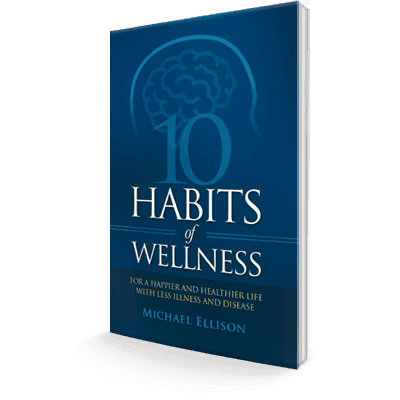
Harvard Health Publishing recently reported that eating more processed food may shorten your lifespan. The report said, cutting down on your amount could help you live longer according to a recent study published in JAMA Internal Medicine. In the study, ultra-processed foods are defined as “ready-to-eat and microwaveable foods such as bread, breakfast cereals, instant noodles, chicken or fish nuggets, chocolate bars, candies, chips, and sweetened beverages.”
That is why chapter 4 in my book is about eating nutritiously, which includes eliminating processed foods and meats! Doing so can add years to your life, and add life to your years for a better quality of life with less sickness and disease. If you desire an active and rewarding life, the 10 Habits of Wellness will be your daily guide!
Ladies, please take note. Harvard Medical School recently published a study done on 5,000 women age 63-97 on the risk of the sedentary lifestyle. The study showed that adding just an additional hour of sitting per day increases the risk of cardiovascular disease by 54 percent. The key to reducing risk is by moving more frequently. Find an excuse to move daily! Get up regularly for a glass of water, to answer the phone, to go the mailbox, or walk the dog. Any activity is better than no activity. Also, beware that inactivity is a contributing factor to Peripheral Artery Disease (PAD) that creates pain in the legs.
People who engage in daily physical activity will enjoy much more quality of life. It is outlined in chapter 5 in the 10 Habits of Wellness.
Listen up, men! Harvard Medical School released this information for men:
“Ok men. Can you run as fast as you were when you were 20 years old? Hit a golf ball as far? Smash a tennis ball with the same speed and spin?
Probably not.
But even as we age, there are still plenty of ways to stay in the game and enjoy it. That’s true of sex as it is in sports.
Whether you currently suffer from erectile dysfunction (ED) or are hoping to sidestep this condition, try these tips to overcome ED for better health and a better sex life.
- Start walking. According to one Harvard study, just 30 minutes of walking a day was linked with a 41% drop in the risk for ED. Other research suggests that moderate exercise can help restore sexual performance in obese middle-aged men with ED.
- Eat right. In the Massachusetts Male Aging Study, eating a diet rich in natural foods like fruit, vegetables, whole grains, and fish – with fewer red and processed meat and refined grains – decreased the likelihood of ED.
- Pay attention to your vascular health. High blood pressure, high blood sugar, high cholesterol, and high triglycerides can all damage arteries in the heart (causing heart attack), in the brain (causing stroke), and leading to the penis (causing ED).”
A pill for every ill is not always the answer to enjoying the quality of life available and that we desire. It is with great joy for me to see a leading institution like Harvard Medical School and Harvard Health Publishing promoting the significant advantages of healthy choices we can make to improve health and well-being.
One last note, I am very excited about entering a new agreement with Advantage-Forbes Books in getting the 10 Habits of Wellness out to the many people who are seeking a greater understanding of how to support their wellness and quality of life. They are believers in the essentials of wellness.
May you enjoy greater wellness!
-

Episode 11: Featuring Olivia Remes
Olivia Remes, Ph.D., discusses the physical, emotional, spiritual, and social consequences of common mental health conditions, and meaningful ways to improve your mental well-being.
How is it possible that millions are connecting every day through social media, yet feel lonelier than ever? On this episode of Healthy You, Olivia Remes, Ph.D. delves into the often overlooked topic of mental health. She discusses the prevalence of issues like anxiety, depression, and loneliness, possible reasons why this epidemic is growing and offers practical tools for coping with these conditions.
About Olivia Remes, Ph.D.

Olivia Remes is a mental health researcher with a focus on depression and anxiety at the Department of Public Health and Primary Care at the University of Cambridge. Olivia became very interested in researching these common mental disorders to understand why some people are more prone to developing them and the societal impact associated with these conditions. She has been interviewed by Sky News and BBC News about her research; she also gave a widely-viewed TEDx talk on how to cope with anxiety.
TED Talk: How to Cope with Anxiety

Anxiety is one of the most prevalent mental health disorders, and it affects people worldwide. Unfortunately, very few people who need treatment actually receive it, which can lead to other conditions such as depression and disability. In her talk, Olivia Remes provides a roadmap for coping with anxiety and how to manage this disorder.
-
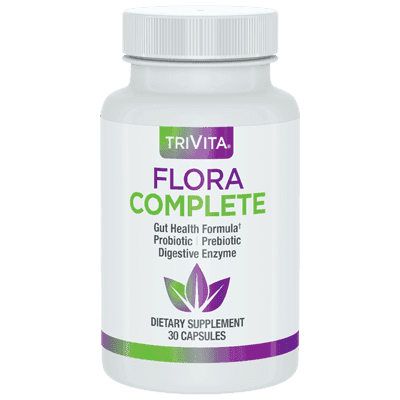
Probiotics, Prebiotics, and Your Health
You’ve likely heard of probiotics, but you may be less familiar with prebiotics. Both play critical and complementary roles for your gut and overall health.
Your gut lining, just like all other surfaces of your body, is covered in a layer of microscopic organisms, mostly bacteria. These little bugs create your microbiome and play a crucial role in how you think, feel, behave. You have a mixture of good and “bad” bacteria in your body, and striking a balance between the two is necessary for feeling your best.
Of your nine body systems, the digestive/immune system is one of the most important. It is responsible for the digestion of food, absorption of nutrients, elimination of waste, and overall immunity. Your gut acts as your body’s gatekeeper, letting in the helpful and turning away the harmful. Unfortunately, the standard American diet (SAD) is full of processed foods that can weaken and destroy healthy bacteria ultimately allowing harmful organisms to proliferate.
Probiotics: The Good Guys
Probiotics are the good bacteria that live inside your gastrointestinal (GI) tract. Probiotics help break down and digest food, support your immune system, and improve overall gut health. Gut bacteria can also influence and regulate hormone and neurotransmitter production, which impact your mood and feelings.
Some of the health benefits of increasing the number of probiotics (good bacteria) in your gut include:
- Improved gut health. Probiotics support digestion, regularity, and can help reduce instances of diarrhea. A healthy digestive system can also reduce common, but uncomfortable, conditions like gas and bloating.
- Improved immune system. The majority of your immunity cells reside in your gut, so it makes sense to heal your gut if you want to strengthen your immune system. Maintaining a healthy and diverse microflora protects you from harmful bacteria. Studies have shown that supplementing with probiotics can affect gene expression related to immune regulation.
- Boosting mental health. Your gut is often referred to as your “second brain.” Imbalances in gut bacteria, also known as dysbiosis, can directly affect your mental state. A review published in the Journal of Neurogastroenterology and Motility in 2016 found that probiotics were effective in improving psychiatric disorder-related behaviors including anxiety, depression, and memory abilities in animal and human trials.
- Healthy weight management. According to a 2016 review published in Nutrition and Metabolism, probiotics can impact food intake, appetite, body weight and composition, and other metabolic functions by increasing gut bacteria and diversity.
Prebiotics: The Food That Feeds Them
Prebiotics receive far less attention than probiotics, but they serve an essential purpose. Prebiotics are the food that feeds probiotics. They come from non-digestible fiber found in certain plant-based foods. It’s important to note that all prebiotics are fiber, but not all fiber is prebiotic.
Prebiotics act like a fertilizer that helps healthy bacteria in your gut flourish. Found in many fruits and vegetables, these fibers aren’t digestible, so they pass through the digestive system, are fermented by your microflora, and then produce essential nutrients for your probiotics. Prebiotic foods include:
- Asparagus
- Onions and garlic
- Chicory root
- Jicama
- Legumes
- Bananas
- Apples
Please note: It’s best to consume prebiotic foods raw because it preserves their fiber content.
Why You Need Both
Both probiotics and prebiotics are essential to maintaining the health of your gut as well as your entire body. Without prebiotics to fuel your good bacteria, they will starve and leave you at risk. And if you forgo taking probiotics, your prebiotic fiber is of little value. Combining prebiotics and probiotics is the best way to support your gut.
Adverse effects tend to be rare with prebiotics and probiotics; however, as with any type of supplement, you should consult with your healthcare professional before taking any supplement especially if you have a compromised immune system or digestive condition.
MyFloraDaily
Prebiotic $19.99
$19.99- Two small capsules per day
- Gentle on the stomach
- Not affected by heat, cold, acid or time
- Organic/GMO-free
MyFloraDaily
Probiotic $39.99
$39.99- Shelf stable
- 10 billion Colony Forming Units (CFUs) at time of manufacture, 5 billion at the one year expiration date guaranteed
*See catalog or website for up-to-date pricing and availability.
-

Episode 10: Featuring Douglas Casa
Douglas Casa, Ph.D. discusses everything hydration, including under-hydration, over-hydration, and understanding your basic fluid needs and status.
Everyone knows it’s important to drink water; after all, it’s one of [TVBLOGCOPY]TriVita’s Essentials for Health & Wellness[/TVBLOGCOPY][MWSBLOGCOPY]TriVita’s Essentials for Health & Wellness[/MWSBLOGCOPY]. But many people seem to fall short of meeting their hydration goals. On this episode of Healthy You, Douglas Casa, Ph.D. discusses why it’s crucial to properly hydrate, especially during physical activity and during hotter months of the year. He also shares how poor hydration can affect your cognitive function and mood, cardiovascular health, and physical performance.
About Douglas Casa

Douglas Casa, Ph.D. has dedicated his life to the study of hydration, heat-related illness, exertional heat stroke, and the prevention of sudden death in sport. He is the CEO of the Korey Stringer Institute at the University of Connecticut, where he and his team work with athletes and athletic staff, military personnel, and laborers of all levels to educate on the importance of hydration as well as promote safety and awareness of heat-related illnesses.
Dr. Casa has authored over 140 peer-reviewed research studies, worked with media outlets such as ESPN, NBC, CNN, PBS, Sports Illustrated, and USA Today. He has also treated over 150 exertional heat stroke victims all without fatalities.
Preventing Sudden Death in Sport & Physical Activity

Sudden death is a growing concern in sports and physical activity, and exertional heat stroke is one of the leading causes. Preventing Sudden Death in Sport and Physical Activity examines prevention, recognition, and treatment protocols, as well as common causes of heat-related illness.
-

Natural Ways to Ease Joint Discomfort
Joint health matters regardless of your age. Your joints play a critical role in your mobility and stability. Joint pain doesn’t just affect older populations; in fact, in the U.S. approximately one-third of individuals between 18 and 64 years of age have arthritis. Osteoarthritis is the most common type of arthritis and is the result of wear and tear over the years, but there are over 100 different types of arthritis.
Your joints affect your body’s ability to perform complex movements as well as daily tasks like rising out of a chair, getting dressed, and going grocery shopping. Joint swelling, pain, arthritis is traditionally treated with anti-inflammatory medications and painkillers. However, these drugs can cause serious side effects, and more natural approaches are growing in popularity.
Exercise Often
It cannot be emphasized enough; regular physical activity is the single most important thing you can do to improve your joint health and maintain joint mobility. Your joints are designed to be in motion. Even simple movements such as sitting and standing or doing household chores are fine, but the movements performed while exercising are better.
Synovial fluid is a thick liquid that lubricates and cushions your joints. Exercise increases the production of this fluid, in turn reducing joint stiffness and friction. Physical activity also boosts circulation which helps deliver oxygen and nutrients to your joints. Researchers have repeatedly found that individuals with arthritis notice a decrease in their symptoms during periods of physical activity. Thirteen different clinical trials examined walking as well as muscle-strengthening exercises and found that they were safe and effectively decreased pain and disability associated with arthritis.
Rest and Relax
As explained above, exercise is crucial to maintaining healthy joints. However, that’s only part of the equation. Getting adequate amounts of rest before periods of activity will allow your body to repair itself naturally and will help prevent potential injury and further joint pain.
Care for Your Gut
Many studies have found links between gut microbiome, rheumatoid arthritis, and other autoimmune disorders. Your immune system is influenced by trillions of microbes –both harmful and helpful – living inside your digestive tract. A growing body of research is suggesting that disruptions in the microbial ecosystem may contribute to many chronic diseases, possibly even certain types of arthritis. There is still a lot to learn about the possible links, but probiotics offer a wide range of health benefits including enhanced immune function and improved digestive health. Adding probiotic-rich foods to your diet, such as kimchi or kefir, or taking a probiotic supplement[MWSBLOGCOPY]probiotic supplement[/MWSBLOGCOPY] is a great way to support your gut health.
Control Inflammation
Joint discomfort is widespread and can result from many different conditions including damage from disease or injury. There are so many possibilities, so it’s important to speak with your doctor if you experience joint pain, swelling, or stiffness. That being said, adopting an anti-inflammatory diet can not only support joint function; it can help support healthy levels of inflammation and improved well-being. Anti-inflammatory foods include green, leafy vegetables such as kale, spinach, and broccoli, fruits like berries and apples, nuts and seeds, and fatty fish such as salmon. If you’re concerned about maintaining healthy inflammation, here are five ways to fight chronic inflammation[MWSBLOGCOPY]five ways to fight chronic inflammation[/MWSBLOGCOPY].
Spice Up Your Life
Alternative remedies are growing in popularity, and turmeric is known for its extensive use and benefits. Turmeric is a plant used in traditional Ayurvedic and Chinese medicine to relieve joint discomfort. It is still used today in foods, beverages, and supplements; and recent in vitro studies found that its antioxidant and anti-inflammatory properties inhibit joint inflammation.
Some choose to incorporate turmeric[MWSBLOGCOPY]incorporate turmeric[/MWSBLOGCOPY] into their diets by sprinkling turmeric in soups, on vegetables, or adding it to smoothies and drinks. However, this isn’t the most effective way to reap the benefits. Curcumin, the active ingredient in turmeric, isn’t easily absorbed without the addition of fat. Turmeric is fat-soluble meaning it dissolves in fat and can more easily be absorbed. If you are interested in adding a turmeric supplement to your routine, make sure you find one that also contains fat or oil to enhance absorption[MWSBLOGCOPY]contains fat or oil to enhance absorption[/MWSBLOGCOPY].
A Few Final Thoughts
If you aren’t already concerned about caring for your joints, now is the right time to start! Whatever your age or physical condition, you will benefit from using the information provided above to help you create a plan that will ease joint discomfort and help support a lifetime of mobility and freedom.
Want more information? Check out our Whole Person Approach to Joint Health

Promeric 95
Tumeric-based , natural support for joint discomfort.Gluten & GMO-Free!
*See catalog or website for up-to-date pricing and availability.
-

Scary Side Effects of Sleep Deprivation
Sleep deprivation is a very real problem in modern society, affecting millions of Americans every year. Although occasional changes in sleep are common and mostly harmless, chronic sleep disturbance and sleep deprivation have serious side effects.
Sleep Loss Impairs Judgement
Sleep deprivation inhibits your ability to make sound and thoughtful judgments. This is mostly because a tired individual is less likely (or able) to fully and accurately assess situations and act on them wisely. Just one sleepless night can impair performance and judgment as much as a blood alcohol level of 0.10 percent, which is beyond the legal limit to drive. And similarly to alcohol, sleep deprivation makes it more difficult to accurately assess how impaired you actually are when you’re tired.
Sleep Deprivation Affects Your Mental Health
Mental health and sleep are closely connected although researchers aren’t exactly sure how. The overlap between mental health disorders and sleep disorders is so pronounced that researchers suspect both types of conditions share common biological roots. Studies in both children and adults suggest that sleep problems may increase the risk for, and even directly contribute to, the development of some psychiatric disorders including depression, bipolar disorder, and anxiety disorders. One longitudinal study of approximately 1,000 adults ages 21 to 30 found that compared with normal sleepers, those who reported a history of insomnia during their first interview were four times more likely to develop major depression by their second interview three years later.
Lack of Sleep May Increase Your Risk of Death
In the “Whitehall II Study,” researchers from the University of Warwick and University College London, found that a lack of sleep can more than double your risk of death from cardiovascular disease. The study looked at the sleep patterns of a group of 10,308 civil servants and found that those who cut their sleep from 7 hours per night to 5 hours or less faced a 1.7 fold increased risk in mortality from all causes and doubled the increased risk of death from cardiovascular disease.

Losing Sleep Can Lead to Serious Health Issues
Chronic sleep loss can adversely affect your health and hinder your daily function and productivity. While short-term sleep deprivation can affect your memory, productivity, alertness, and energy, long-term sleep loss has more serious consequences. Regular lack of sleep is associated with an increased risk of developing certain chronic conditions such as:
- Diabetes and impaired glucose sensitivity
- Heart disease
- High blood pressure
- Metabolic changes, including obesity and hormonal imbalances
Easy Ways to Improve Your Sleep
Getting enough sleep is important, but it’s not just the duration that matters. The quality of your sleep is also essential to feeling your best. There are several ways to improve the time spent asleep and the quality of your rest.
- Maintain a regular sleep routine. Go to bed at the same time each night and wake up at the time every morning – even on weekends and holidays.
- Avoid caffeine late in the day. The effects of caffeine can last for several hours and may make it difficult for you to fall or stay asleep.
- Don’t watch TV in bed. Having a TV in your bedroom can keep you later than you intended and/or disrupt your sleep cycles.
- Exercise regularly. Regular physical activity promotes healthy sleep cycles, but rigorous exercise or activity should be avoided before bedtime.
Want to improve your sleep naturally?
Listen to the Healthy You podcast episode featuring sleep expert Dr. Daniel Gartenberg
-

Have You Found the Power of Your Purpose?
I wholeheartedly believe that everyone –at any age– is living with more opportunity to express their purpose, potential, destiny, and legacy. Do you have the vision for the purpose that is driving your life?

You have a unique purpose, even if it’s beyond your comfort zone. So many people allow their comfort zones to limit their potential, purpose, and power – which can alter your destiny and legacy.
Are the circumstances of your life dictating your vision? Is your obsession in life dealing with the visible and material evidence of life, or the invisible and immaterial circumstance of vision? That obsession can lead you to a whole new way of living!
When I think of purpose and good works I am reminded of 2 Corinthians 9:8:
“And God is able to make all grace (every favor and earthly blessing) come to you in abundance, so that you may always and under all circumstances and whatever the need, be self-sufficient, possessing enough to require no aid or support and furnished in abundance for every good work and charitable giving!”
I’ll never forget something Shad Helmstetter, Ph.D. said while recording a recent podcast episode. He said one of his favorite places in the world is the hospital, the place where babies are born. The warmth and empathy in his voice as he expressed the awe he feels when he sees the eyes of those babies as they begin their search for things to support their potential and purpose in life. Yes, every baby has awesome potential to change someone’s world. Dr. Helmstetter’s episodes were released on [TVBLOGCOPY]April 1st [/TVBLOGCOPY][MWSBLOGCOPY]April 1st[/MWSBLOGCOPY]and another on [TVBLOGCOPY]May 1st[/TVBLOGCOPY][MWSBLOGCOPY]May 1st[/MWSBLOGCOPY], so don’t miss those!
I am equally in awe of the person who at any age recognizes that purpose has such incredible power in their life, and the need for wellness to support that purpose. My new book, The 10 Habits of Wellness will give insight and plenty of science to support how lifestyle choices impact wellness! It is not merely the absence of disease or the management of disease. Wellness is having the vitality and energy to do the things we love and are purposed to do; to have daily positive emotions of love, forgiveness, gratitude, and acceptance; having a relationship with God knowing His purpose for your life. That is an amazing life to live!
When this connection of wellness and the vision of purpose becomes real in our lives, it impacts every decision we make that affects our health and well-being. Then the choices about which foods we eat, the need for targeted nutrition (like what we offer at TriVita), the exercise, the forgiveness, the gratitude — all these choices become so much easier to make. We are no longer controlled by feelings but by the deepest passionate belief in our purpose and the need for abundant wellness! Again, I invite you to recognize, even if your vision and purpose may not have the scale to change the world, it can change someone’s world!
-

Episode 09: Featuring Dr. Shad Helmstetter – Part 2
Shad Helmstetter is back to discuss the different tools and techniques to rewire your brain through positive self-talk.
Shad Helmstetter, Ph.D. is back on Healthy You to elaborate on the power of self-talk. Last time Dr. Helmstetter and Michael Ellison discussed the science behind self-talk, and now they are delving into the techniques and process of rewiring your brain for health and happiness.
Interested in brain training and self-talk? Visit www.Selftalkplus.com to take advantage of the free 30-day trial. There you can listen to thousands of self-talk recordings for self-esteem, health and fitness, positive relationships, career achievement, and much more!
Click here to listen to part 1 of this podcast.
About Dr. Shad Helmstetter

Shad Helmstetter, Ph.D. is a pioneer in the field of self-talk and is the bestselling author of over 20 personal growth books. He is the first behavior researcher to focus on the role of self-talk as a primary programming source that directs our effectiveness and life path. Dr. Helmstetter has reached millions with his insights in his appearances on more than 1200 radio and television programs including Oprah Winfrey, ABC, CBS, NBC, and CNN News. Dr. Shad Helmstetter is also the founder of The Self-Talk Institute and The Life Coach Institute, which trains and certifies life and business coaches in the United States and internationally.
What to Say When You Talk to Your Self

Learn how to reverse the effects of negative self-talk and embrace a more optimistic outlook on life! In the updated edition of What to Say When You Talk to Your Self, Shad Helmstetter, Ph.D. shares how to reverse the effects of negative self-talk with his Five Levels of Self-Talk: Negative Acceptance, Recognition and Need to Change, Decision to Change, The Better You, and Universal Affirmation.
Click Here to Listen Part 1 of This Podcast
Interested in brain training and self-talk? Visit www.Selftalkplus.com to take advantage of the free 30-day trial. There you can listen to thousands of self-talk recordings for self-esteem, health and fitness, positive relationships, career achievement, and much more!
-
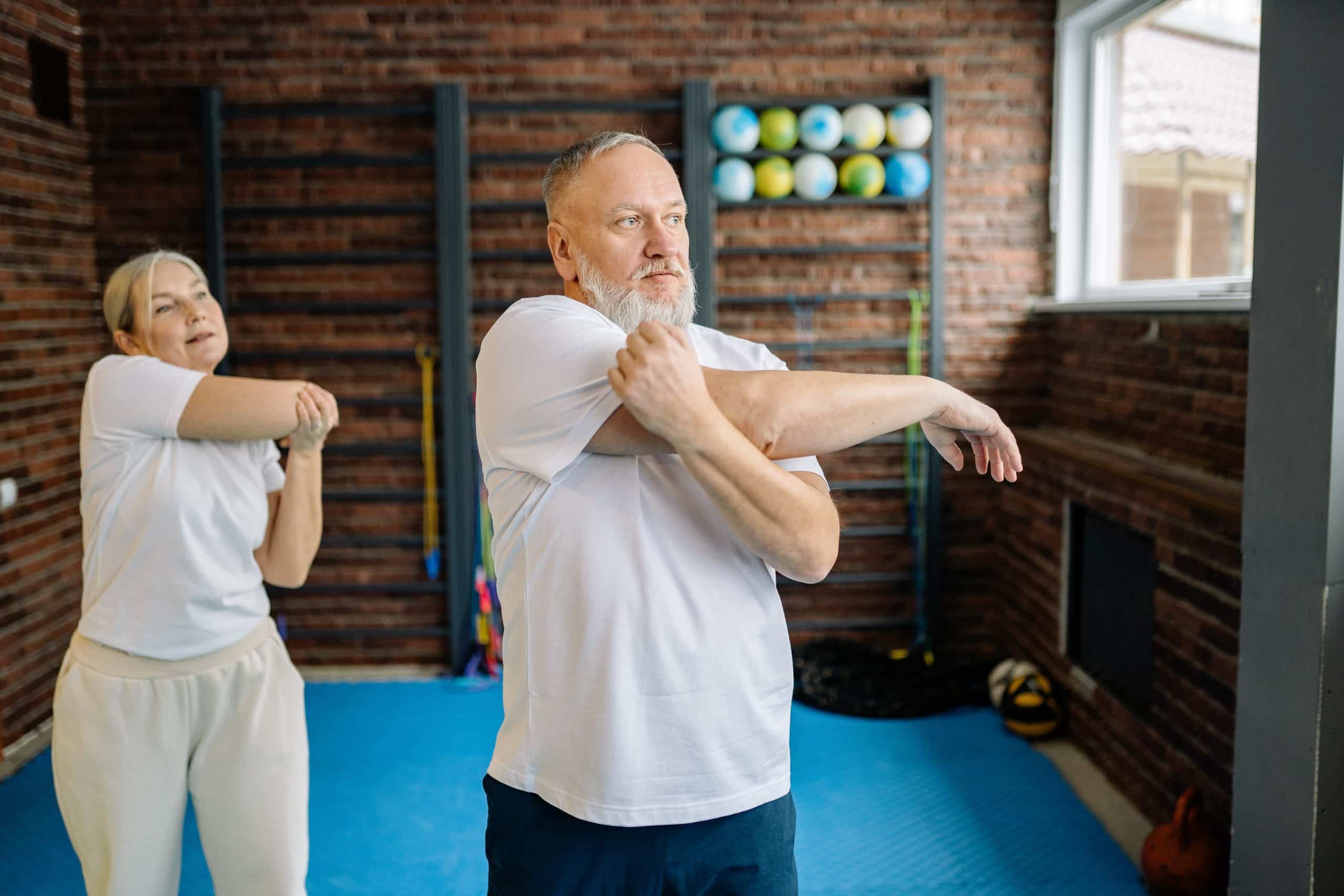
Reduce Inflammation with These Four Low-Impact Exercises
Chronic inflammation can be debilitating. It can make you feel tired, lead to aches and pains, reduce your mobility and joy for life. But studies are showing that a surprisingly small amount of daily exercise can help reduce your inflammation
. A study published in Brain, Behavior, and Immunity, showed that just 20 minutes of brisk walking could produce anti-inflammatory effects. During exercise or physical exertion, the brain and sympathetic nervous system are activated. Hormones are then released into the blood and trigger immune cell responses which help boost the immune system and reduce inflammation
. While the study focused strictly on brisk walking, there are other ways to exercise that support healthy inflammation levels. Here are four low-impact exercises to try.
Swimming

Swimming has numerous benefits, from increasing flexibility, improving muscle mass and strength, and improving cardiovascular and lung health. Swimming also allows you to choose your intensity and is low-impact, which makes it an excellent exercise for anyone.
Walking
Walking is the ultimate form of exercise because it is free, requires no special equipment and can be done anywhere! Keep in mind that if you are new to exercise or have any physical limitations, speak with your doctor and go at your own pace.
Yoga
Yoga, especially when paired with deep breathing, improves mood, focus and reduces stress which in turn helps reduce inflammation. Yoga
not exactly your thing? No worries; you can still experience the stress-reducing benefits by breathing deeply while you do nearly anything!Sitting Exercises
For anyone with limited mobility, sitting (or chair) exercises are a must! Chair exercises can build muscle, improve flexibility, increase circulation and keep your joints lubricated. Movement can include calf raises, seated marching, seated shoulder presses with weights or resistance bands, and sit-stands.
-

Episode 08: Featuring LuAnn Roberson
LuAnn Roberson, Discover Hope contributor, helps tease out what it truly means to be a spiritual being, and how to find hope even in the darkest times of our lives.
At TriVita, we believe that all humans are physical, emotional, and spiritual beings, which is why we discuss all three in our 10 Essentials of Health and Wellness. However, for millions, desperation, uncertainty, and fear have replaced hope and faith. On this episode of Healthy You, LuAnn and Michael each share personal experiences of when they lost sight of hope, and how they moved through their despair to, once again, find hope.
About LuAnn Roberson

LuAnn Roberson is the Minister of Spiritual Care at Discover Hope. She is trained as a spiritual director and works with a variety of leaders and learners who wish to explore, deepen, and experience healing in their relationship with God. LuAnn also has extensive training in cancer and critical care nursing. She received her nursing degree through Arizona State University and carries multiple specialty certifications, which have equipped her with the knowledge, training, and compassion to offer hope, dignity, and companionship to others as they face life-altering situations.
About Discover Hope

Discover Hope is devoted to meeting others where they are and helping them discover HOPE through writing, speaking, and spiritual care. Richard Parrish and LuAnn Roberson work with pastors, churches, and Christian leaders to help support the spiritual care of others in various ways including spiritual direction, mentoring, teaching, and retreats.
To learn more about Discover Hope, visit www.DiscoverHope.net -
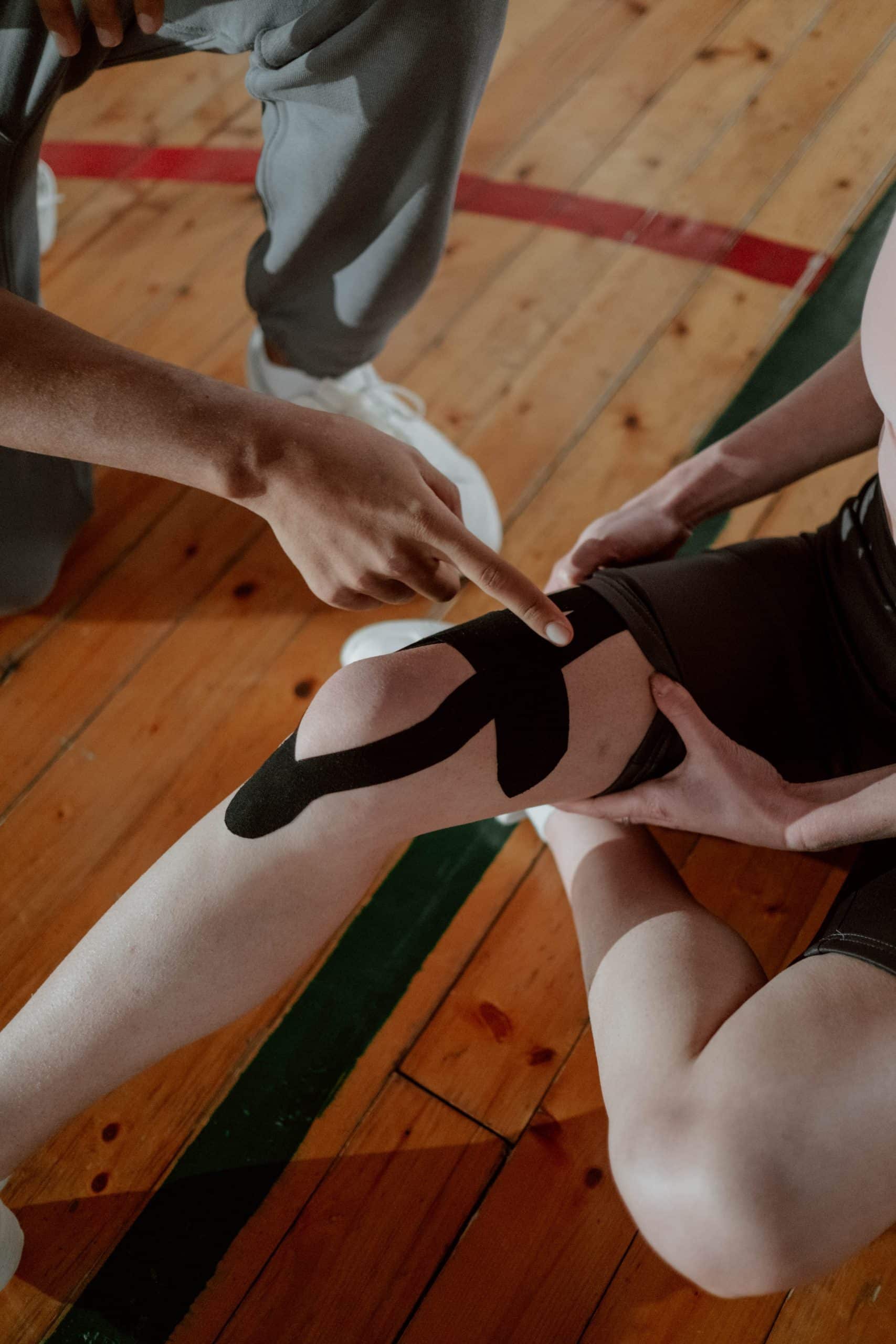
How to Prevent and Recover from a Fall
When you were a child, falling was a regular occurrence. You’d get back up and move on. But as you age, it’s not as simple to bounce back. No one wants to fall and risk an injury, but still, it’s the leading cause of fatal and nonfatal injuries in adults over the age of 65 each year. According to the National Council on Aging, falls resulted in more than 27,000 deaths and over 2.8 million injuries treated in emergency departments each year.
Even with or without serious injury, fall can significantly impact your quality of life and ability remain independent in your later years. The fear of falling is extremely common, and can result in lack of confidence, limited physical activity, and withdrawal from social engagement –all of which actually increase your risks!
Why Do Older Adults Fall
? The first step to reducing your risk is understanding what may cause you to fall. There are a variety of reasons including poor eyesight or hearing, dizziness as the result of a medication or illness, poor balance, or trip hazards like boxes or a loose rug in the home.

While these can certainly contribute, falls are more commonly attributed to an “incorrect transfer or shifting of body weight,” according to research from Simon Fraser University. Stephen Robinovitch, the lead author of the study, explained that 41% of the tumbles they recorded as part of their research involved body movement that improperly changed the patients center of gravity while walking or standing. Many of the over-corrections or misjudgments occurred while moving from a chair to a walker, or vice versa.
Preventing a
Fall A lack of strength, especially in core muscles, hamstrings and glutes, can be to blame for some of these issues. These muscle groups play significant roles in controlling stability and balance. Talking with your doctor or a physical therapist to get suggestions and learn how to perform exercises properly can be tremendously beneficial. If you already exercise regularly, try incorporating more practices that focus on the areas listed above as well as activities that build balance and coordination such as yoga or dancing
. The persistent fear of falling is widespread among older adults, especially those who have fallen before. Fear can be a helpful signal, but it can also undermine your health. Intense fear of falling can lead to avoid activities that you are capable of and limit your range of motion unnecessarily. Building confidence around movement won’t happen overnight; so be patient with yourself.
Recovering from a Fall
Everything happens incredibly fast when you suddenly lose your balance and stumble. You won’t always have to catch yourself safely. If you do experience a fall, take a moment to calm down, collect your bearings, and check for any signs of pain or immobility. If you feel dizzy, lightheaded or unaware of your surroundings, it’s vital to call for help immediately
. If you are unharmed, slowly rise to a seated position and remain there for a few moments to allow your blood pressure to normalize. Once you feel stable enough, find a secure object nearby to anchor you as you get up. Once you’re up, find a safe place to rest and recover
. Whether or not you’re injured, you’ll want to contact your doctor. He or she can work with you to address any underlying issues, such as poor vision, hearing loss, or possible side effects from medications which may increase your risk of falling
. The best way to prevent a devastating fall is to maintain your strength and mobility. Ideally, this should begin as early in life as possible. However, it’s never too late to start. No matter what your current activity level is, there are options available to help you build strength and improve mobility and coordination.
-

I Almost Let This Opportunity Slip By Me
If you are like me, sometimes we hesitate to share things with people that we believe may help them because we fear being misunderstood. I think most of us really desire to help another person
. Do you ever hesitate to do good works? Do you ever hesitate because you think someone may feel you are too pushy, too nosey, or that they may feel you are insinuating something totally different
? 
Larry Kerychuk Well, let me share a recent experience I had. It truly has a remarkable outcome, and I almost missed it because I hesitated. Larry Kerychuk is the founder and president of Athletes International (AIM), and I have known Larry for a number of years. I admire his work, which has included working with outstanding sports personalities like Joe Namath, coach Lou Holtz, and the list goes on
. I had heard Larry had some really serious health issues so I thought I would give him a call. Then I hesitated because I thought he might misunderstand. Well, a couple of weeks went by, and I knew my heart and motive was good and gave him a call. Please watch Larry’s story below. It is amazing! [TVBLOGCOPY]MyoHealth[/TVBLOGCOPY][MWSBLOGCOPY]MyoHealth[/MWSBLOGCOPY] is a fantastic product. It has the science and the scientist to back its powerful promise of “Live stronger and bolder at any age.”
I encourage you to let your good works, motivated by love for people, guide you. You never know the good that may result.
-

Episode 07: Featuring Dr. Shad Helmstetter – Part 1
Dr. Shad Helmstetter sheds light on the concept of self-talk and shares the three crucial steps to program your brain for success and happiness.
We talk to ourselves all the time, often without realizing it. And most of what we say is negative, harmful, and counterproductive. On this episode of Healthy You, Dr. Shad Helmstetter offers valuable insight into how what we say and think directly affects our success or failure.
Click here to listen to part 2 of this podcast.
About Dr. Shad Helmstetter

Shad Helmstetter, Ph.D. is a pioneer in the field of self-talk and is the bestselling author of over 20 personal growth books. He is the first behavior researcher to focus on the role of self-talk as a primary programming source that directs our effectiveness and life path. Dr. Helmstetter has reached millions with his insights in his appearances on more than 1200 radio and television programs including Oprah Winfrey, ABC, CBS, NBC, and CNN News. Dr. Shad Helmstetter is also the founder of The Self-Talk Institute and The Life Coach Institute, which trains and certifies life and business coaches in the United States and internationally.
What to Say When You Talk to Your Self

Learn how to reverse the effects of negative self-talk and embrace a more optimistic outlook on life! In the updated edition of What to Say When You Talk to Your Self, Shad Helmstetter, Ph.D. shares how to reverse the effects of negative self-talk with his Five Levels of Self-Talk: Negative Acceptance, Recognition and Need to Change, Decision to Change, The Better You, and Universal Affirmation.
Interested in brain training and self-talk? Visit www.Selftalkplus.com to take advantage of the free 30-day trial. There you can listen to thousands of self-talk recordings for self-esteem, health and fitness, positive relationships, career achievement, and much more!